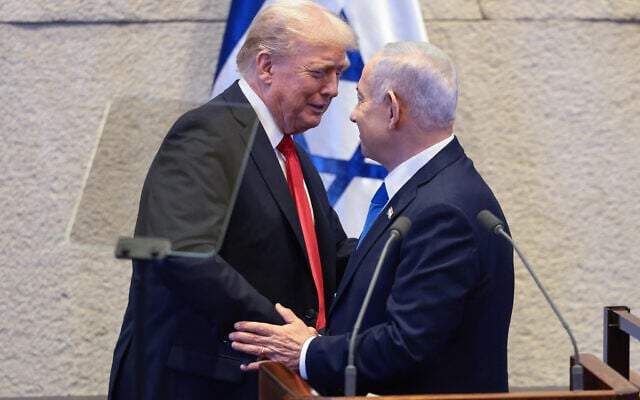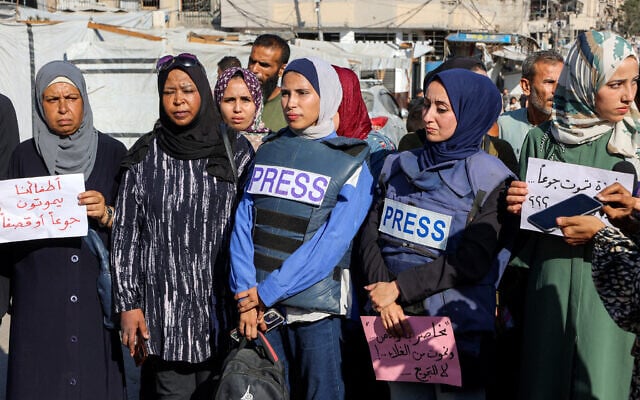US President Donald Trump’s administration is urging Israel to allow foreign journalists into Gaza now that a ceasefire is in place, two US officials told The Times of Israel on Monday.
Washington began making the request earlier this year, and Trump himself told reporters, when asked in August, that he would like to see foreign journalists allowed into Gaza, while noting that it was not safe there.
Parts of Gaza are more dangerous than others, with Israel still in control of the eastern half of the Strip following the October 10 start of the ceasefire, the Trump administration has renewed its request for journalists to be given access to the Strip, one of the US officials says.
However, the second US official acknowledged that the issue is not at the top of Washington’s priorities, indicating that its pressure on the issue may not be overwhelming, which could allow Israel to maintain its ban.
The White House did not respond to a request for comment.
Trump said on Sunday that he has pressured Prime Minister Benjamin Netanyahu on a number of issues since returning to office.

“I had to push him a little bit one way or the other. I did a great job in pushing,” Trump told CBS’s “60 Minutes,” adding that Netanyahu is a “very talented guy… [who has] never been pushed before.”
“I didn’t like certain things that he did, and you saw what I did about that,” Trump said.
Israel’s policy, determined by the defense minister and the IDF, has been to deny independent access to all journalists to Gaza since the beginning of the war.
It has, however, allowed Israeli journalists and, to a lesser extent, foreign journalists to enter Gaza as embedded reporters with IDF forces.

On October 23, the High Court of Justice gave the state another 30 days to file an update to its position on the independent entry of journalists into the Gaza Strip, in response to a petition by the Foreign Press Association demanding such access. The petition was filed in 2024, and the state filed its response in June this year.
During the short October 23 hearing, the three presiding justices pointed out that the circumstances in Gaza had changed substantially since the state had filed its response due to the ceasefire that came into force earlier this month.
In its petition, the FPA argues that the blanket ban on independent access to Gaza for journalists “contravenes the foundational principles of the state as a democratic country, and represents a severe, unreasonable and disproportionate injury to the freedom of the press, freedom of expression, and freedom of employment for journalists and the right to information.”
The basis of the state’s arguments against allowing independent access to Gaza for the press rests on concerns that the entry of journalists into the Strip would pose security risks to IDF soldiers and the journalists themselves — concerns that would presumably be mitigated by the cessation of hostilities.

